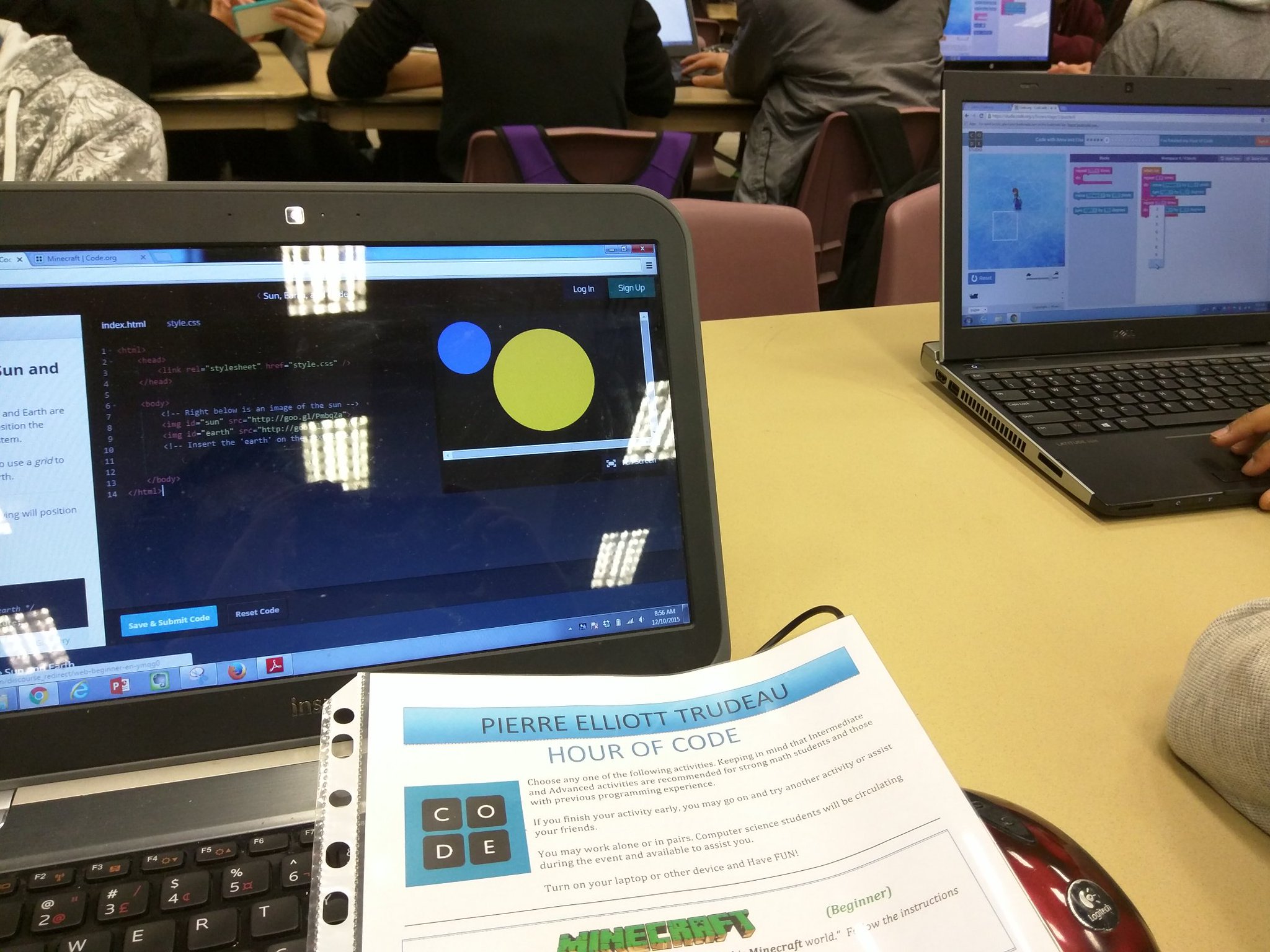I heard from a few of my 9 academic students that they've done this before, but they got a lot more out of this session than in previous years. They don't realize that maybe perhaps last year's experience set up today's success.
I wanted to integrate programming into the course. So I assigned some homework:
For homework the night before, I had given each student a different set of four numbers. With each of their four numbers, they were required to create their own 1 step, 2 step, and 2 step equations involving distributive property.
I then introduced my scratch assignment to my 9 applied math class using the previous week's Hour of Code as a springboard. Students are to make a multiple choice quiz on Scratch with the four questions they did as homework the night before. I had them start off with a template.
Some had a little hard time with this because 1) I didn't give them that much time to play with it (one official period only...and 2 other mini periods where they had a choice to study or do this assignment) and 2) it was introduced in the last week of before holidays when a few other assignments from other classes were due and 3) their reception for learning something completely new wasn't quite in this last week.
About a third of my class got it done perfectly. Take a look at this example.
Others don't know to check and debug. I know she can solve equations and build equations as I've assessed her separately on a previous test means that she hasn't debugged program properly:
Here's one student who went above and beyond by using the 30 minutes of introduction and probably previous programming experience to add some bells and whistles to the template I introduced to them:
There are some that have yet to hand it in.
I'm going to have to do some work after the break; I'll probably introduce some peer assessment process to help them go through the debugging process and then help the other 30% that didn't hand it in a little push. Should I add it to the rubric? Next semester.
I gave them a template, and they had to follow the instructions. It was mostly an exercise in creating their own equation, and then a matter of some data entry. However, the program's template isn't that intuitive, so inevitably, they have to learn the process of debugging and trying again. They experienced the confusion and pain associated with "programming" - and if they persisted, the joy of "programming" in a microcosm of one period.
I guess I can give myself a point for integrate programming into the math curriculum without having it take up more time than necessary. At the same time, it can be argued that they learned more about data entry than programming. I'll live with that - I've rarely been able to cover the curriculum well in an applied environment and to be able to do something new like this is quite a luxury - especially with the EQAO test next month.
Alternative assessment of the year? Done. Will I try it next semester? Let's see what my colleague says.
Anyways, here's the rubric (also attached) that I used:
https://drive.google.com/open?id=0BxWy_f8Du24JSDJkUVJqZTg1ZGs


No comments:
Post a Comment